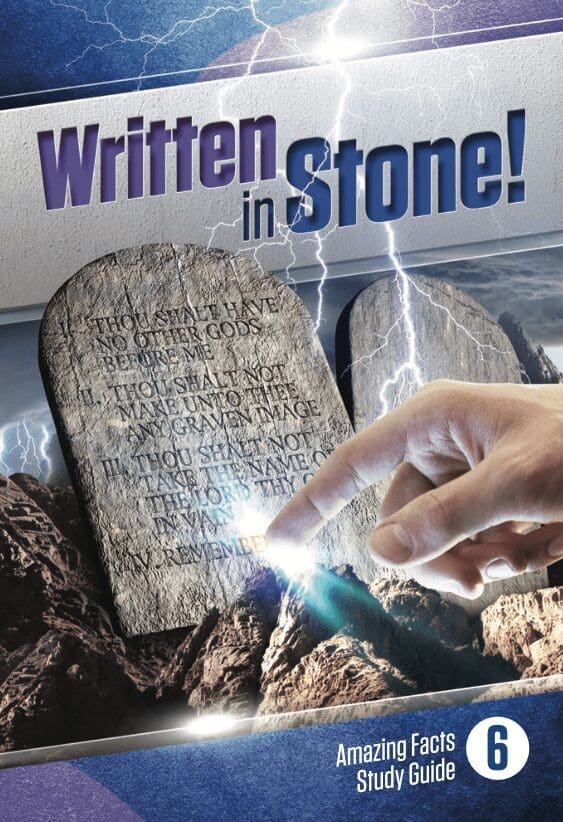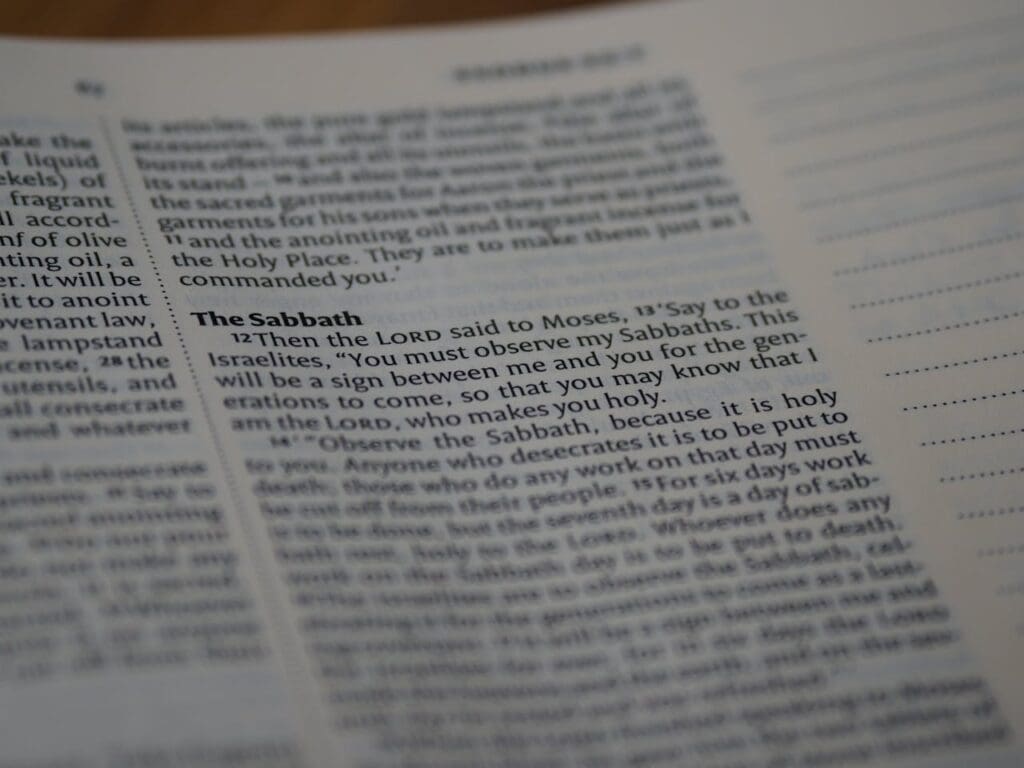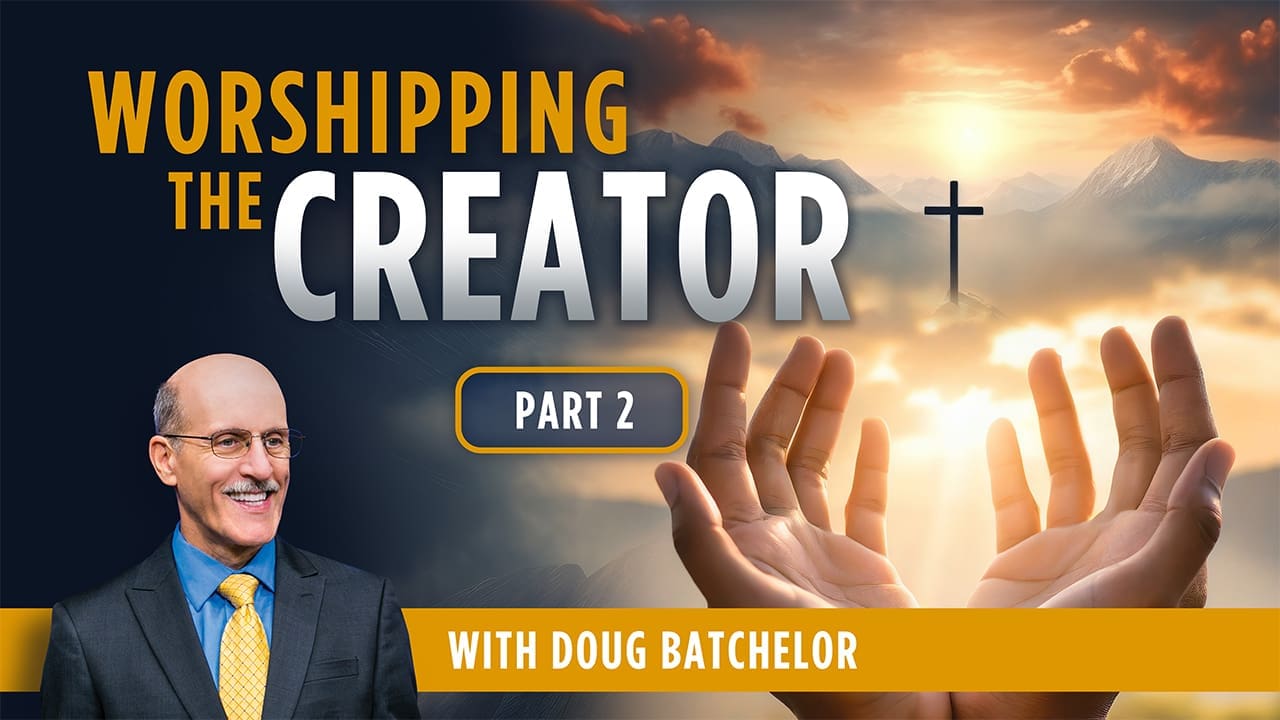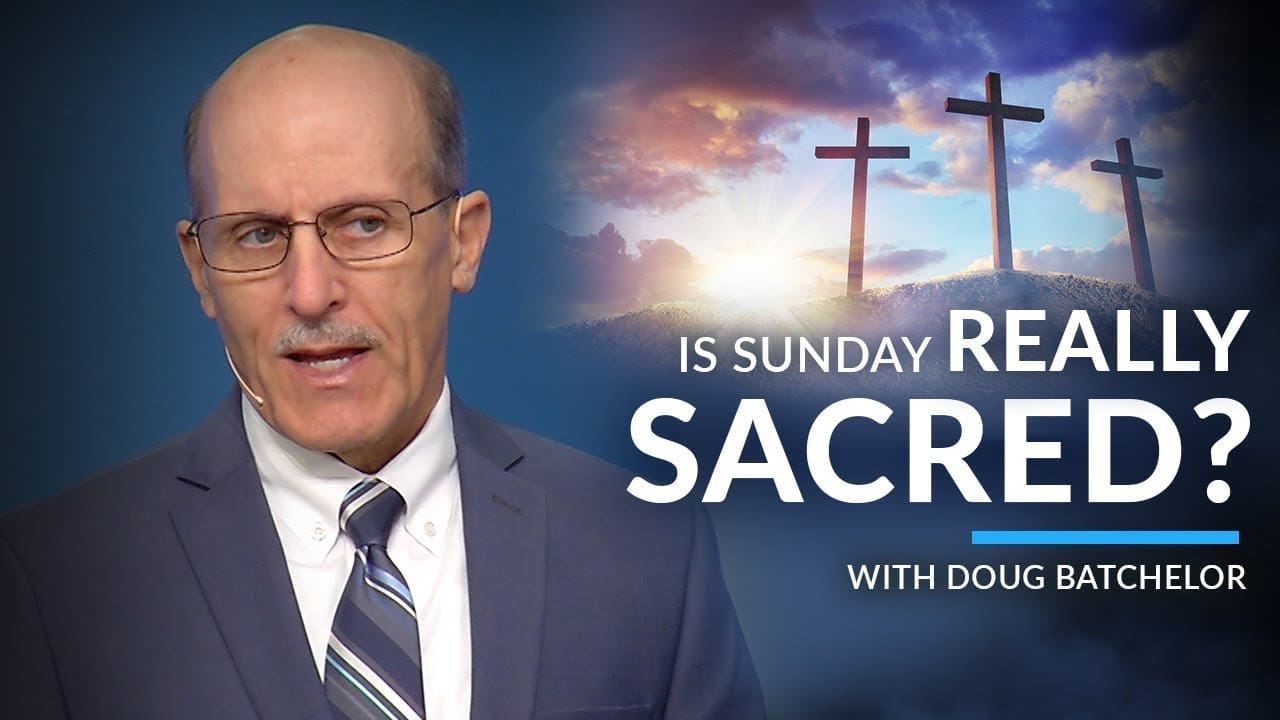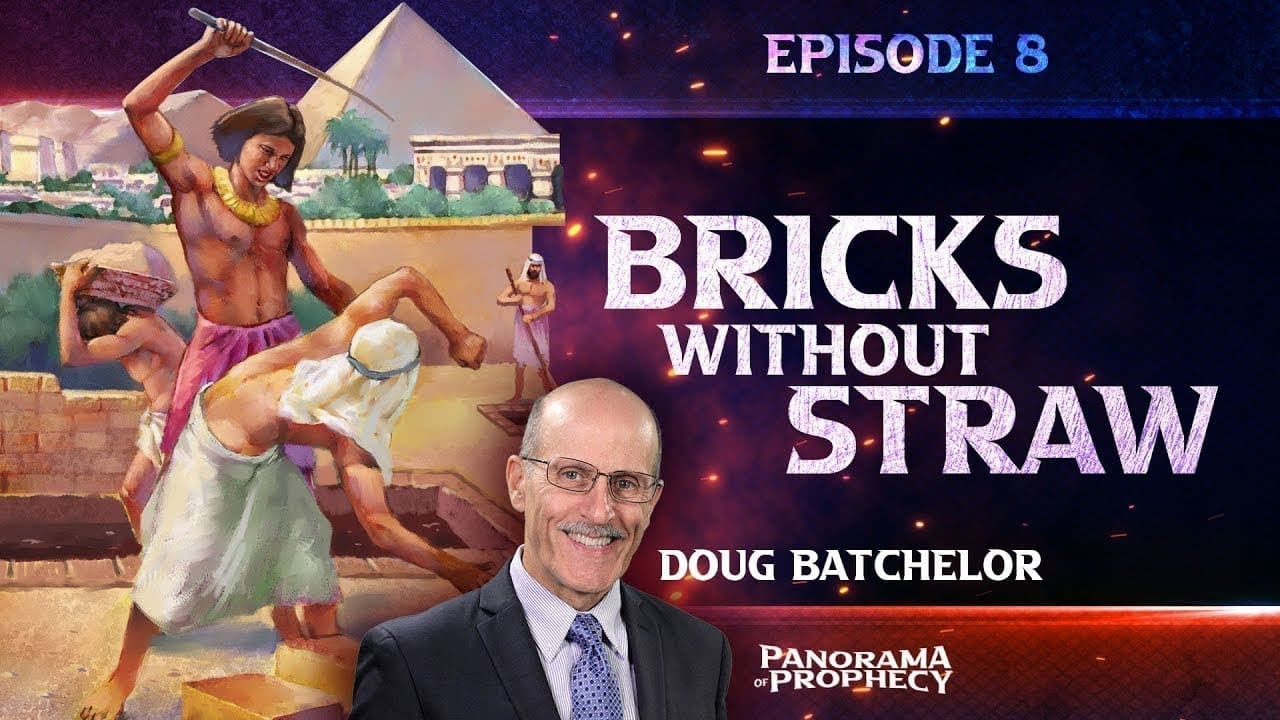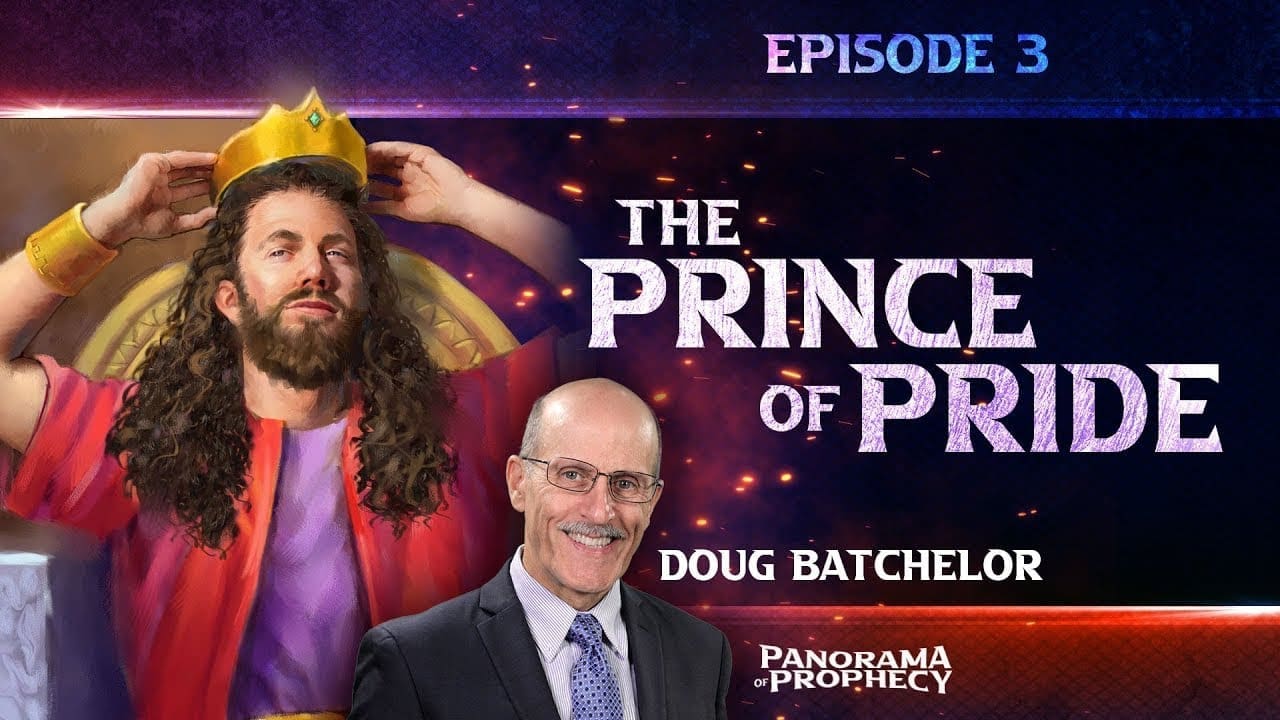What did Jesus say about the Sabbath?
During the time of Christ, the Sabbath was a big part of Jewish life. They had learned the hard way what the consequences were for continued, deliberate, and rebellious breaking of the holy Sabbath day. For their rebellion, they had to endure 70 years of Babylonian captivity.
God lamented through the prophet Ezekiel:
“I also gave them My Sabbaths, to be a sign between them and Me, that they might know that I am the Lord who sanctifies them. Yet . . . they did not walk in My statutes . . . they greatly defiled My Sabbaths”
Ezekiel 20:12-13
The people did not listen to the warnings God gave through His prophets, so eventually, after many, many years of patient pleading, God fulfilled His threat to ‘scatter them among the Gentiles and disperse them throughout the countries because they. . . despised My statutes and profaned My Sabbaths’ (Ezekiel 20:23-24).
After 70 years of captivity, God, in His mercy, sent them a deliverer in Cyrus, King of the Persians, who allowed the Jews to return to their homeland, rebuild their temple, and re-establish their religious practices. The Jews remembered that their breaking of the Sabbath was directly connected to their ruin, so they now became rigorous in its observance. However, in their zeal, they overcompensated, and the pendulum swung in the opposite direction – from total disobedience to oppressive regulation.
Over the years, these regulations piled up so that by the time of Christ, the laws controlling the observance of the Sabbath were tyrannical. The day was no longer a restful remembrance of Christ as our Saviour and Redeemer but a day to be dreaded. Harsh rules made it nearly impossible for a faithful Jew to perform even common-sense activities on the Sabbath. What they could carry, how far they could walk, what they could do, and what they could not do, was minutely regulated until it bordered on the ridiculous.
Jesus came to Reveal the True Meaning of the Sabbath.
Christ came to demonstrate by word and by example the true meaning of the Sabbath. In no way did He change the Sabbath to another day, but He threw off those meaningless restrictions that made the Sabbath so oppressive. The Jewish leaders bitterly opposed Him in this work and eventually crucified Him because He would not bend to their traditions. Man-made laws and regulations had cluttered up the true meaning of this day of rest, so Jesus set about to establish in the minds of men God’s original plan for the Sabbath.
Observing the Sabbath was part of Jesus’ Regular Routine.
Luke 4:16 – “So He came to Nazareth, where He had been brought up. And as His custom was, He went into the synagogue on the Sabbath day and stood up to read”. Jesus read from Isaiah 61:1-2 which announced His mission as the Messiah. The Jews resented this claim and tried to kill Him because of it.
Jesus is Lord of the Sabbath
“And He (Jesus) said unto them (the Pharisees), the Sabbath was made for man, and not man for the Sabbath. Therefore, the Son of Man is also Lord of the Sabbath”.
Mark 2:27-28
Jesus here declares ownership of the Sabbath. It is the Lord’s Day. It belongs to Christ. For “all things were made by Him, and without Him was not anything made that was made.” (John 1:3).
The Sabbath was made for mankind. After 6 days of creating the heavens and the earth, God rested on the seventh day and blessed and sanctified it (Genesis 2:1-3). That is, He set it apart for holy use, a day in which His children were to remember Him as their Creator, Sustainer, and Sanctifier. “I gave them My Sabbaths, to be a sign between Me and them, that they might know that I am the Lord who sanctifies them,”—makes them holy (Ezekiel 20:12). It is a day for special fellowship between man and his God. On this day, the newly created Adam and Eve communed with their Creator.
Jesus Liberated the Sabbath.
As ‘Lord of the Sabbath’ Jesus sets the rules that govern its observance. He is the One that has the authority to decide who is, or who isn’t, breaking the Sabbath.
Matthew 12:1-8 records the story of the disciples in a grain field hungrily plucking the heads of grain to eat. The ever-watchful Pharisees were quick to condemn the disciples as Sabbath-breakers because they were ‘harvesting’ on the Sabbath day. This, according to their rule book, was ‘unlawful’. But, in fact, what the disciples were doing, was according to the Jewish law of gleaning (Deuteronomy 24:19). They were merely eating sufficient to satisfy their hunger. In response to the Pharisee’s claim of law-breaking Jesus declared His Lordship over the Sabbath – the One who decides the rules for its observance.
Jesus never diminished the importance of the Sabbath, but He stripped away those Pharisaical requirements that made it a burden.
Jesus Favourite Sabbath Day Activity.
Jesus performed many good works on the Sabbath to demonstrate to the Jews how God wanted His day to be honoured, but His favourite Sabbath activity was to heal the sick and suffering. Jesus’ great heart of compassion was drawn out in sympathy for these suffering ones and, after He passed through a village, there was not a moan of sickness to be heard.
To the Pharisees, however, healing on the Sabbath was against their law! Luke records an incident when Jesus entered a synagogue on the Sabbath and saw there a man with a withered hand (Luke 6:6-11). As always, the religious leaders, the Scribes and the Pharisees, watched Him with jealous eyes. Would He dare to break their laws and heal this man on the Sabbath? Jesus knew their thoughts, and turning to them, said:
“I will ask you one thing. Is it lawful on the Sabbath to do good or to do evil, to save life or to destroy?” (Luke 6:9). As they did not respond, Jesus healed the man’s hand. Then the religious leaders were “filled with rage and discussed with one another what they might do to Jesus” (Verse 11).
The apostle John records a similar incident by the pool of Bethesda. Here Jesus met a man who had been crippled for 38 years. Jesus asked him, “Do you want to be made well?” And after the man replied in the affirmative, Jesus said, “’Rise, take up your bed and walk’. And immediately the man was made well, took up his bed, and walked. And that day was the Sabbath”.
The Jewish leaders soon met up with the former cripple, and demanded, “It is the Sabbath; it is not lawful for you to carry your bed”. So “the Jews persecuted Jesus and sought to kill Him because He had done these things on the Sabbath” (John 5:5-16).
To the Jewish leadership, keeping their petty laws was far more important than relieving human suffering.
Jesus Taught the Scriptures on the Sabbath Day and Cast out Demons.
“Then He went down to Capernaum, a city of Galilee, and was teaching them on the Sabbaths. And they were astonished at His teaching, for His word was with authority. Now in the synagogue, there was a man who had the spirit of an unclean demon. And he cried out with a loud voice . . . But Jesus rebuked him, saying, ‘Be quiet, and come out of him!’ And when the demon had thrown him in their midst, it came out of him and did not hurt him”.
Luke 4:31-35
Jesus Taught the Scriptures on the Sabbath Day and Cast out Demons.
Jesus taught that the Sabbath was a time for freeing people from their bondage – whether physical or spiritual. This is the true spirit of the seventh day. (See Isaiah 58:6-14 for a description of God’s ideal for the Sabbath)
Jesus Taught that all suffering, including that of animals, should be relieved on the Sabbath Day.
While the Pharisees taught that it was lawful to lead a thirsty ox or donkey to water on the Sabbath day, or to pull an animal out of a ditch, it was not lawful to relieve human suffering. Luke records two incidents where Jesus exposed this kind of hypocrisy.
On one occasion Jesus restored a woman whose back injury caused her to be bent over for 18 years. When the ruler of the synagogue objected, Jesus responded:
“Hypocrite! Does not each one of you on the Sabbath loose his ox or donkey from the stall, and lead it away to water it? So, ought not his woman, being a daughter of Abraham, whom Satan has bound – think of it – for eighteen years, be loosed from this bond on the Sabbath?” (Luke 13: 10-16).
In a similar incident, He said, “Which of you, having a donkey or an ox that has fallen into a pit, will not immediately pull him out on the Sabbath day?” (Luke 14:5).
While acts of mercy extended towards the animal kingdom on the Sabbath day are good and lawful in God’s sight, Jesus wants us to also consider the needs of humanity. He asks, “What man is there among you who has one sheep, and if it falls into a pit on the Sabbath, will not lay hold of it and lift it out? Of how much more value is a man than a sheep? Therefore, it is lawful to do good on the Sabbath” (Matthew 12:11-12).
Jesus valued the Sabbath and kept it, even in Death.
Even in death, Jesus kept the sacred Sabbath hours. Jesus died on Friday, called the Preparation Day by the Jews (Luke 23:52-54). It was the day to prepare for the Sabbath. The women who followed Him from Galilee prepared spices and fragrant oils to anoint His body on Friday, but they did not have time to do this before the Sabbath came in, so they rested over the Sabbath “according to the commandment” (Luke 23: 55-56). Then “on the first day of the week, very early in the morning, they . . . came to the tomb bringing the spices they had prepared. But they found the stone rolled away” (Luke 24:1-2), and the tomb empty.
Jesus had much to say about the Sabbath during His time on this earth. But actions speak louder than words. Jesus set us an example of how to keep the Sabbath, but never did He utter one word about changing the time of the Sabbath to another day. Jesus’ debate with the religious leaders was never about whether to keep the Sabbath, but about how it should be kept.
(All Bible references are from the NKJV unless otherwise specified).



